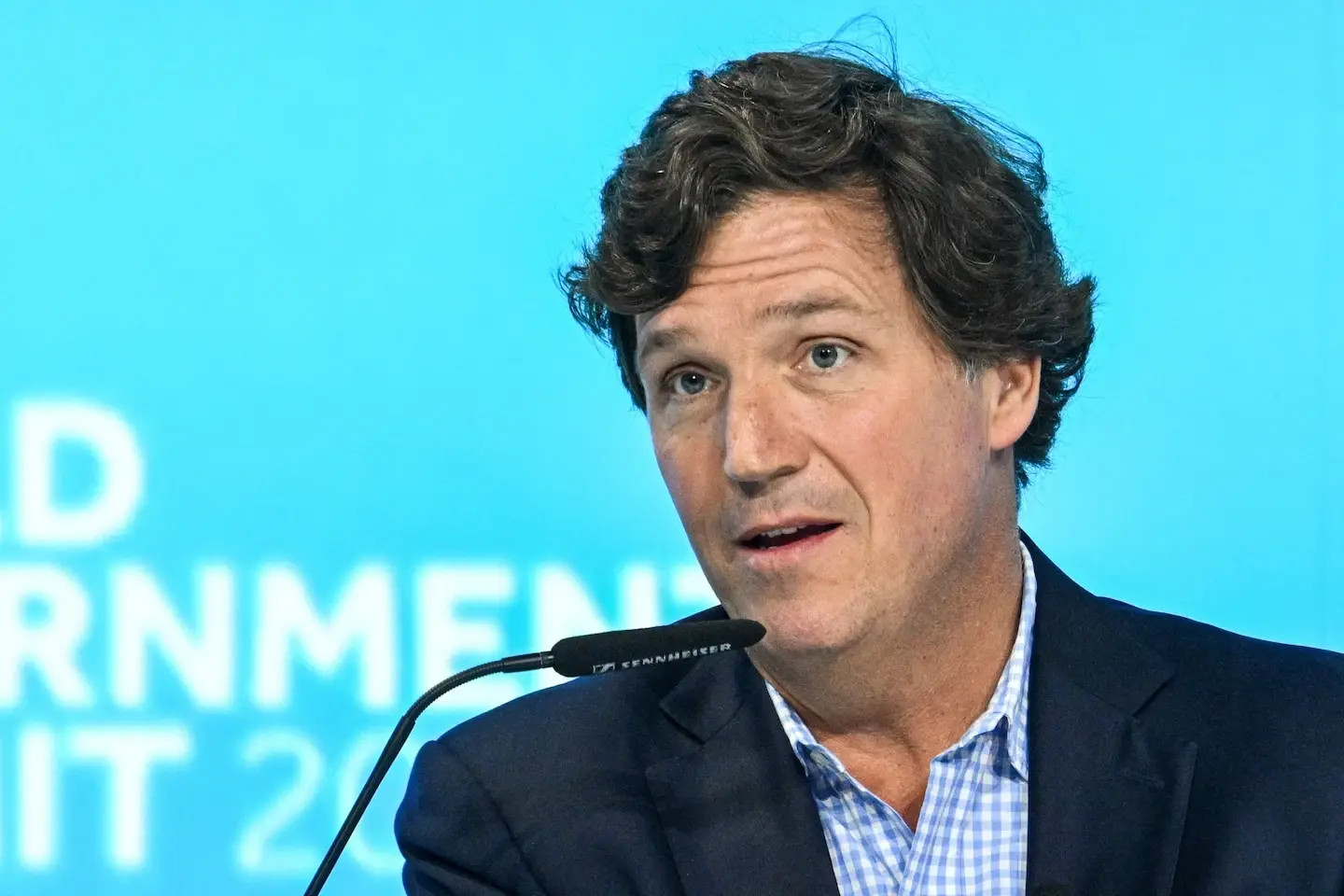
I mean some officials think opening the dev tools in a web browser is hacking sooooooo. Sad to say I dont think the gov is going to catch up in law making to clarify for this case.

Especially since this seems like something that was freely accessible
But in an indictment laying out 14 counts against Burke that include conspiracy and wiretapping, prosecutors allege that the journalist went too far by tapping into a streaming feed site where he acquired unbroadcast video clips of former Fox News star Tucker Carlson and other personalities.
Sounds almost like Elon threatening people who post his flight logs, when the flight logs are freely accessible…

Burke’s lawyers said in that filing that he had merely used publicly available login credentials to access LiveU’s feed, after a “confidential source” showed him where to find the details
Doesn’t sound like they were all that publicly available
Burke’s attorneys called his work “intrepid and perfectly legal,” comparing his use of the login credentials to the sharing of a Netflix password.
I only know literally what I just read in this story, and I’m happy about bro spreading the word about anything nuts that Kanye or Tucker are doing, but this to me doesn’t sound like a real airtight way of justifying that what he did was legal.

The credentials were published publicly and freely available on the open internet.
Maybe the person who published them did something illegal, if they themselves did not have permission to share, but it could have also been an accident or on purpose. At most they violated an NDA, but that doesn’t have criminal consequences.
The journalist who later used them would seem like they should br in the clear.

A key under a doormat is freely available to anyone who knows to pick up the mat. Does that mean it’s automatically legal to pick up the mat, find the key, use it to open up the house, and go inside?

In that scenario how do you propose that the key under the mat is any different than if the door wasn’t locked in the first place?
What if one of the workers at the business invites you in to quietly look around? Should you still be arrested for trespassing if it turns out that specific worker didn’t have permission to invite you in?

In that scenario how do you propose that the key under the mat is any different than if the door wasn’t locked in the first place?
Surely you are joking
What if one of the workers at the business invites you in to quietly look around?
This is actually an excellent analogy. Yes, if one of the workers says hey I happen to know there’s a key at such-and-such location; don’t tell anyone I told you, and then you take it from there you an go in and look around, that to me is clearly criminal. You know you’re not supposed to be there.
The analogy of keys <-> login credentials is a pretty good one. You can make a case “hey I was just walking around, I’m allowed to walk around” and that’s reasonable, just like accessing random URLs or opening dev tools. That’s all legit. Until you encounter a locked door and overcome the locking mechanism in some fashion when you know you haven’t been given access by the owner to be there, at which point it’s clearly unauthorized access. It doesn’t matter if the lock is pretty easy to pick or the key is poorly hidden.
I mean, you can make a case hey I’m a journalist and me accessing this stuff is in the public interest. And that sounds pretty accurate in this case. I’m just saying the “he had to break in to get access to it” side of the argument sounds pretty accurate as well.

Surely you are joking
No. Trespassing is generally considered trespassing even if the door is unlocked. Your the one arguing that it makes a difference if the door is unlocked or if the door is locked by the key posted in plain sight.
As to the other point, it’s more like they were with you, or at least as close as you can be when we’re talking about internet stuff. If one of your friends in the same industry says, hay, i’d like to show you something, let yourself in, we keep the key hanging from a nail right next to the door, it would be resonable to expect you were allowed to be there.
We are talking about one journalist being invited into an another news agencies archive. This isn’t that uncommon of an occurrence, otherwise no agency would otherwise know what footage was available to license from their competitors.

No. Trespassing is generally considered trespassing even if the door is unlocked. Your the one arguing that it makes a difference if the door is unlocked or if the door is locked by the key posted in plain sight.
So… I am not a lawyer and I didn’t use any specific terminology like “trespassing.” I’m just saying how I see it and maybe I am wrong. Any sort of argument that’s based on talking about physical access with a key and crimes committed by physical access is likely to be 100% disconnected from whatever happens legally to him because of what he did electronically. I’m just sorta making a non-legal analogy about how I see it.
We are talking about one journalist being invited into an another news agencies archive. This isn’t that uncommon of an occurrence, otherwise no agency would otherwise know what footage was available to license from their competitors.
Hm… maybe.
I don’t think it’s reasonable to compare being invited to have access to an archive, to being “invited” by some sort of whistleblower to come in and see what you can find when both of you know the actual server operator wouldn’t be happy with the nature of your access.
But that’s me making some assumptions about the nature of the archive and how public the demo credentials were. A lot depends on details that weren’t really available in this one news story, and it sorta sounds like I’m assuming the details were one way and you’re assuming they were the other way, when in reality it could have been either (again just based on this one story).

People regularly post credential dumps on Pastebin, which can be publicly and freely seen, but that doesn’t make those credentials legal to use.
If the journalist had received copies of the video that someone else had downloaded, he’d be in the clear, and that other person would be on the hook.
If the credentials were posted publicly by the news site as a shared login, and the site simply didn’t realize that these videos were accessible with those credentials, he would likely prevail. Otherwise, he is likely guilty of hacking under current US laws.

Nah, if you steal a wallet because it was publicly available, that’s still a theft.

What about if someone else leaves a wallet out in public , and you look at the name before leaving it where you found it?

The metaphor doesn’t stand. In the case of FOX, you obtained information you were not supposed to. You can’t somehow put it back from your brain.

It’s illegal under funeral law to access a computer system that you have not been authorized to use. It’s intentionally vague like that, but unless you are given access by the system owner you are breaking the law
🤖 I’m a bot that provides automatic summaries for articles:
Click here to see the summary
Federal prosecutors indicted freelance journalist Tim Burke on Thursday for accessing internal video footage from Fox News and other media companies, in an unusual case that his attorneys say threatens freedom of the press.
Burke, a former employee of the Daily Beast and Deadspin, gained renown for his ability to obtain timely television clips — such as uncensored footage of Will Smith slapping Chris Rock at the 2022 Academy Awards, or an eerie montage of anchors for local stations owned by Sinclair Broadcast Group all reading from the same script.
But in an indictment laying out 14 counts against Burke that include conspiracy and wiretapping, prosecutors allege that the journalist went too far by tapping into a streaming feed site where he acquired unbroadcast video clips of former Fox News star Tucker Carlson and other personalities.
Vice and Media Matters later published some of the footage obtained by Burke, including outtakes from an interview with Ye, the rapper formerly known as Kanye West, making antisemitic remarks and rambling about “fake children” living in his home — scenes that undermined Carlson’s on-air attempts to present the MAGA-friendly star as thoughtful and levelheaded.
In an interview with The Washington Post in August, Burke compared the video streams to the digital versions of the feeds once broadcast from satellite news trucks, arguing that he hadn’t broken any law by accessing the footage.
Seth Stern, director of advocacy at the Freedom of the Press Foundation, said the indictment seemed to create a “problematic” requirement for journalists like Burke to get approval from public figures before publishing potentially damaging information.
Saved 58% of original text.


